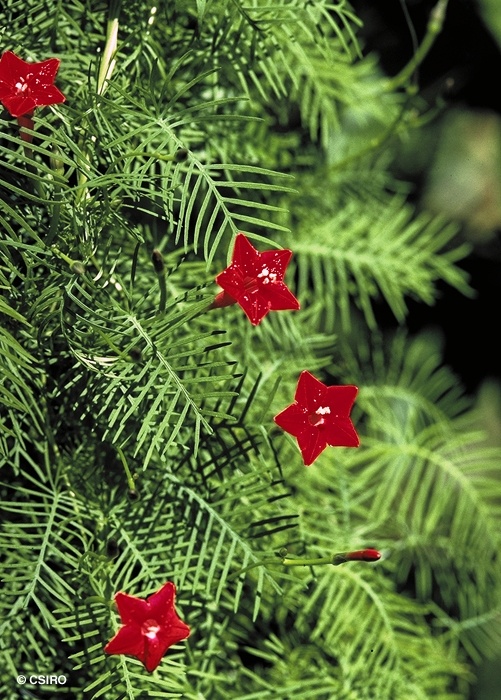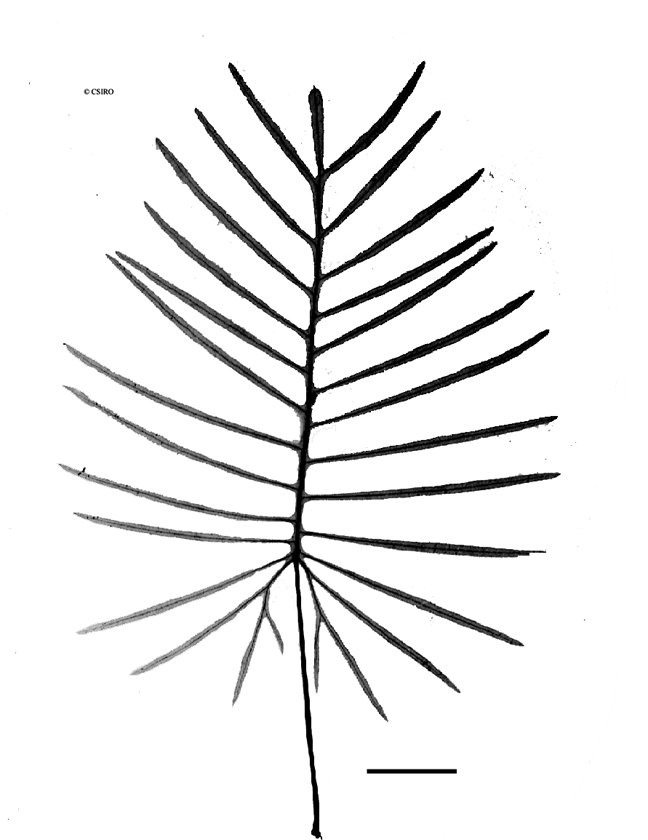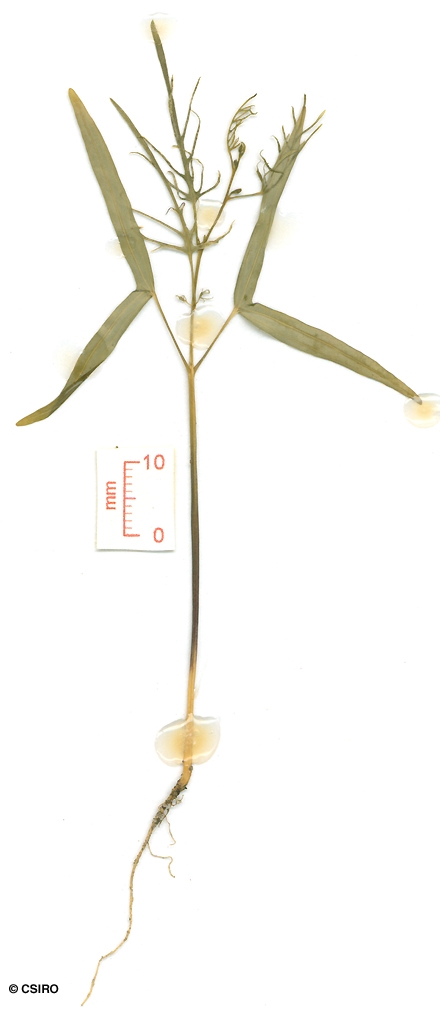Australian Tropical Rainforest Plants - Online edition
Ipomoea quamoclit L.




Linnaeus, C. von (1753) Species Plantarum 2: 159. Type: Habitat in India.
Indian-pink; Cypress Vine; Cupid's Flower; Star of Bethlehem; Vine, Cypress
A slender vine not exceeding a stem diameter of 2 cm.
Leaf structure can be interpreted in two ways: 1. Leaves compound with 16-24 leaflets, basal pair of leaflets bilobed. Leaflet stalks absent. 2. Leaves simple and deeply lobed (pinnatisect) almost to the midrib, each leaf about 2.5-4.5 x 2.5-4 cm, petioles about 1-4 cm long. Lobes 8-15 per leaf. Very small finely divided leaves usually on the twig at the base of each petiole.
Flowers about 1.7-3.5 cm diam. Peduncles about 4-8 cm long. Pedicels about 1.4-2 cm long. Sepals about 5-6 mm long, each sepal ending in a mucronate tip which is attached below the apex of the sepal. Inner surface clothed in small flat glands. Corolla tube about 2.5-3.5 cm long. Corolla lobes about 6-8 mm long, mucronate at the apex. Staminal filaments clothed in hairs towards the base. Pollen grains spinulose. Style about 25-30 mm long. Stigma about 1 mm diam., verrucose, obscurely 2-lobed.
Cotyledons bi-lobed, shaped like a boomerang, each lobe about 30-35 x 2-3 mm, each lobe with two longitudinal veins. Petioles about 10-14 mm long. At the tenth leaf stage: leaves very dissected and lobed or compound depending on how the structures are interpreted. Basal pair of 'leaflets' on each compound leaf are bifid at the apex. Seed germination time 17 days.
This species may have medicinal properties.





